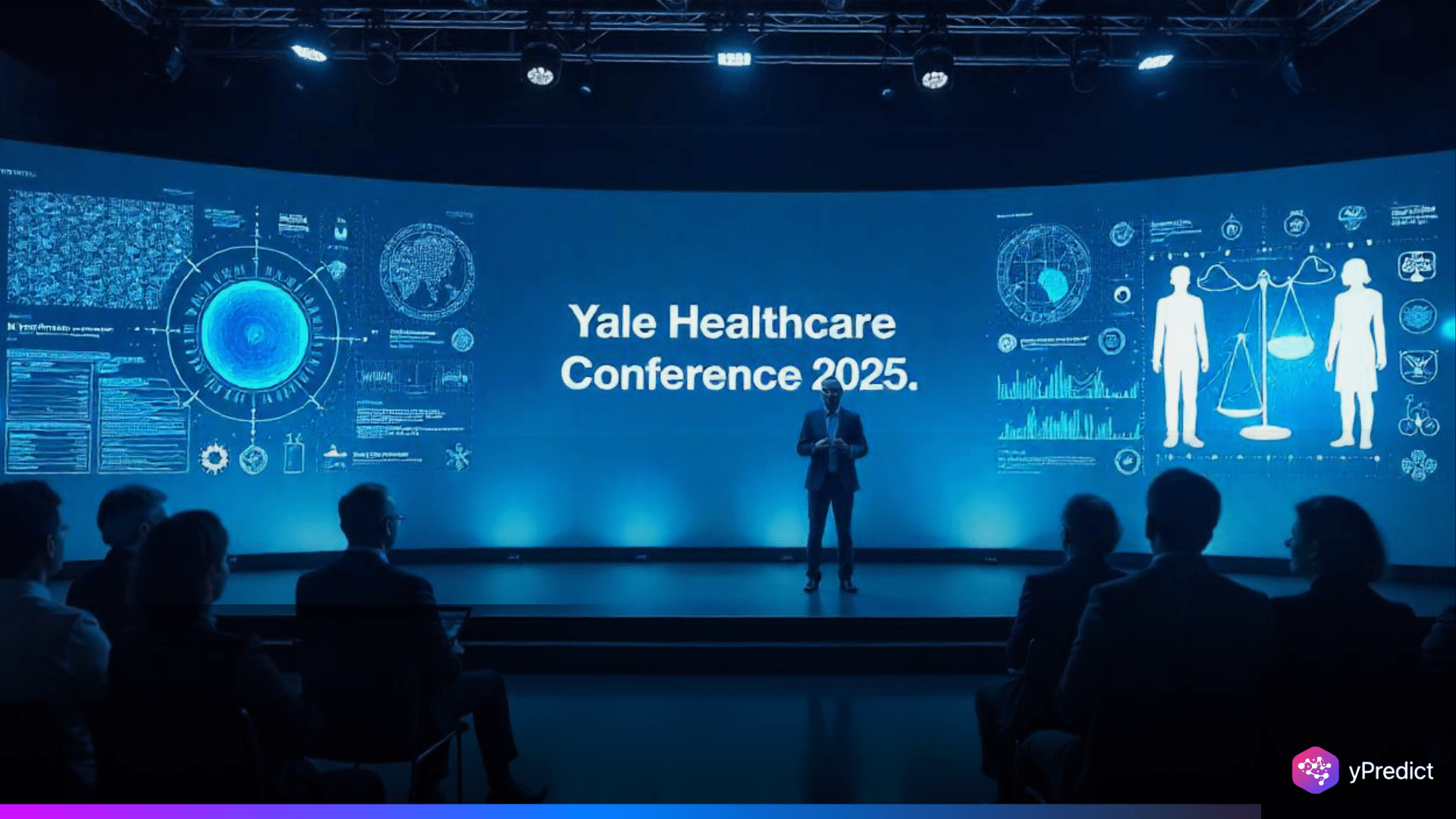
Yale University students brought together healthcare experts and leaders for the 2025 Yale Healthcare Conference, centered on the theme “AI²: Shaping Health with Integrity and Intelligence.” The student-led event, held on April 11 at the Yale School of Management, aimed to explore the growing role of artificial intelligence (AI) in healthcare systems, particularly how it intersects with ethics, policy, care delivery, and global health.
Co-chairs Cecil Ehirindu and Cecilia Jiye Lee, both Yale graduate students, said the theme evolved from last year’s conference, where AI was a breakout topic. This year’s agenda reflected rising interest and urgent questions surrounding AI in healthcare, including how to apply technology with responsibility, transparency, and human-centered values.
Addressing AI and Health Equity Through Multidisciplinary Lenses
While AI in healthcare was the anchor topic, the conference balanced its focus with sessions on chronic diseases, mental health access, and global health. Before any panels, attendees were reminded that “AI paired with empathy becomes amplified intelligence,” an idea inspired by former JD Thompson Awardee Dr. Ingrid Nembhard.
Following the keynote address, panels explored AI governance, clinical use cases, and healthcare policy. Attendees included Yale students, industry professionals, and public health practitioners like Rachel Kitay, SPH’25, who said the conference was a timely platform for those passionate about the ethical deployment of tech in medicine.
Ryan Shi from the content committee noted the emphasis on diversity, both in lived experiences and professional backgrounds. “Our goal was to ensure every attendee, regardless of discipline, found something meaningful and challenging,” he said.
Global Health, Infrastructure, and Real-World Barriers to AI Adoption
One standout session, “Scaling Solutions in Global Health,” focused on the unique challenges AI faces in low and middle-income countries. Discussions touched on infrastructure limitations, localization, and affordability, highlighting that a one-size-fits-all approach cannot succeed globally.
Keynote speaker Dr. Nneka Mobisson, co-founder and CEO of mDoc, emphasized this point. Her company uses AI to manage chronic diseases across sub-Saharan Africa. Drawing from her Yale MD/MBA background, she explained how culturally aware and accessible tech is critical to improving outcomes in under-resourced areas.
Earlier, JD Thompson Award recipient Andrew Bhak gave an opening keynote that examined hospital systems, financial policy, and the political economy of AI in health. Both speakers underscored the urgency of building AI that’s not just functional, but ethical and inclusive.
Yale’s Student-Led Model for Shaping the Future of Healthcare
Behind the scenes, the conference required major logistical coordination from students. From tech run-throughs to real-time issue resolution, 33 volunteers were assigned in shifts, trained through briefings and venue walkthroughs. According to logistics co-lead Miguel Agreda, the seamless execution was a point of pride.
The conference also received support from sponsors like Northwell Health, ICON, and Yale’s School of Public Health. The finance committee, led by Andrew Smith, kept ticket prices low while ensuring high-quality programming through outreach to alumni and networks.
Marketing strategies spanned LinkedIn, Instagram, Bluesky, and email campaigns to attract healthcare professionals and students alike. Visual branding and messaging were crafted to reflect both Yale’s academic prestige and the energy of student-led innovation.
Conclusion: AI in Healthcare With Purpose and Responsibility
Faculty advisor Dr. Howard Forman praised the conference as “a showcase of Yale’s best,” highlighting cross-disciplinary student leadership, faculty expertise, and engaged discussion. As AI continues to evolve in healthcare, the conference reinforced the need for integrity, thoughtful implementation, and inclusive development. Organizers said they hoped attendees left with new insights, a fresh connection, and a call to lead with intelligence and empathy.






